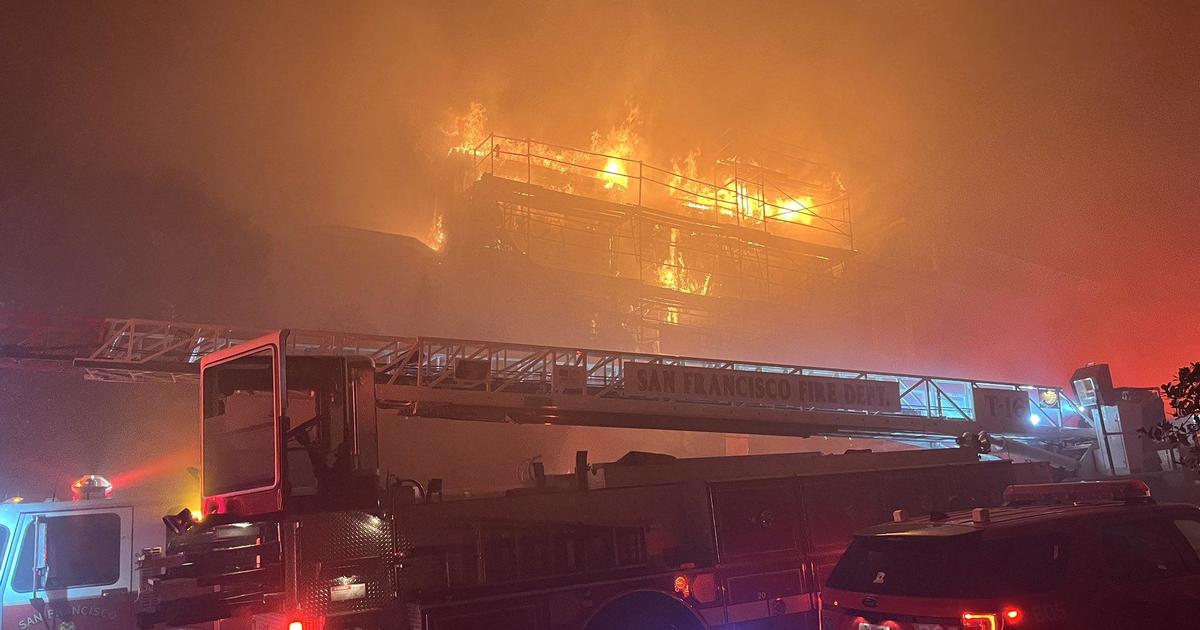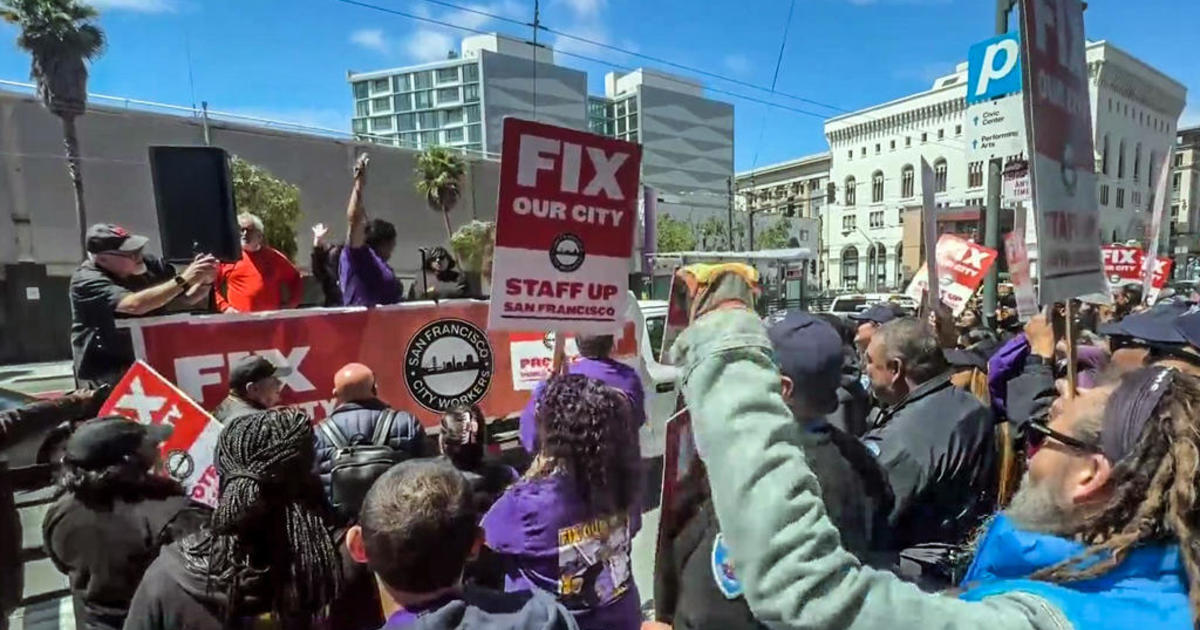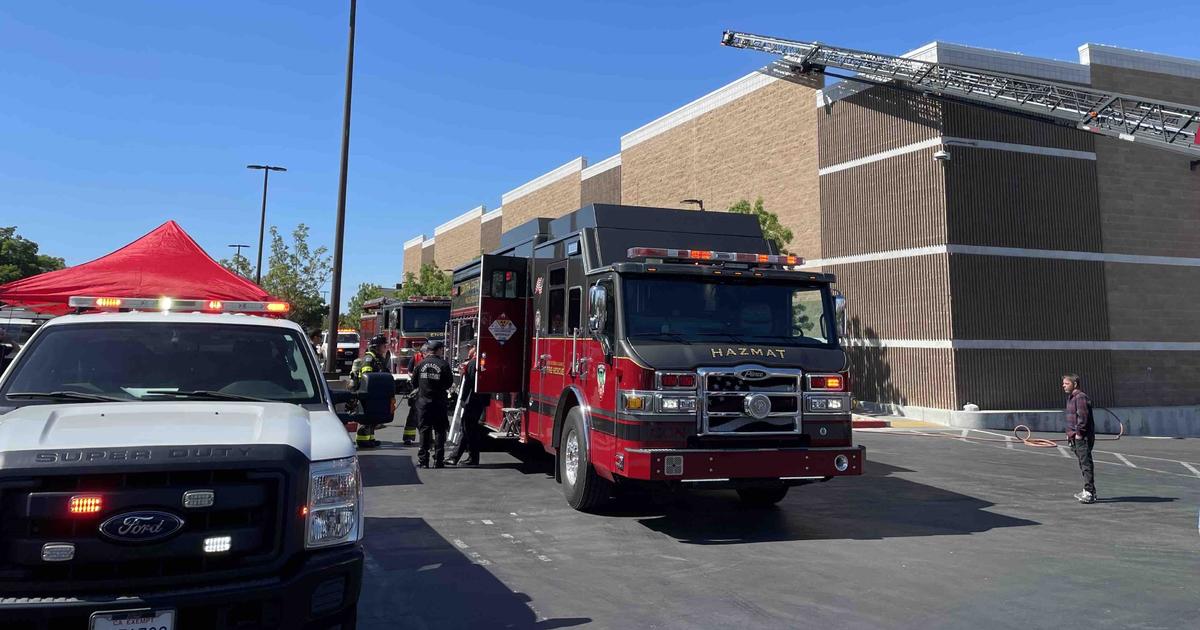Judge Tours New San Quentin Execution Chamber
SAN QUENTIN (CBS/BCN) - A federal judge who halted California executions five years ago over concerns that the process amounted to cruel and unusual punishment toured the state's new death chamber Tuesday to see what improvements have been made.
U.S. District Court Judge Jeremy Fogel inspected the new, $900,000 death chamber at San Quentin Prison, accompanied by two dozen lawyers, prison and court staff and media.
Fogel also planned a hearing at the prison, as he tries to decide whether to allow executions to resume.
The judge imposed the moratorium after finding the previous death chamber dim and cramped, and the lethal injection procedures inadequate.
Prison officials say the new chamber is roomier and better lit. The state also has adopted new regulations and improved staff training.
Fogel has said he hopes to issue a final ruling on the case this year. He has scheduled a hearing on motions for March 4, and may set additional deadlines or dates at a status conference in his San Jose courtroom on Friday.
KCBS' Bob Melrose Reports:
California executions have been on hold since Fogel concluded in 2006 that the procedure had numerous flaws, including inadequate training of staff and a poorly lit, overcrowded and badly designed execution chamber.
Fogel issued that ruling in an earlier version of the lawsuit filed by Michael Morales, 51, of Stockton, who was sentenced to die for murdering and raping 17-year old Terri Winchell in Lodi in 1981.
Since then, the state has revised its three-drug lethal injection protocol and built a new execution chamber at San Quentin.
Three other death row inmates have now joined Morales in the case. They claim the revised protocol, which continues the use of three drugs, still carries the risk of unconstitutional cruel and unusual punishment.
The lawsuit alleges that if the first drug, a barbiturate, fails to make an inmate fully unconscious, the paralytic second drug may mask extreme pain caused by the heart-stopping third drug.
"Continued use of the three-drug procedure ... is an intentional and willful disregard of a known and substantial risk of inflicting severe pain and suffering," the inmates said in the most recent version of the lawsuit, filed in October.
The defendants - Gov. Jerry Brown, state Corrections Department Secretary Matthew Cate, and San Quentin Warden Vincent Cullen - deny the claims.
"Defendants ... specifically deny that the lethal-injection procedures contain any deficiencies that create a substantial and present risk of severe pain and suffering," the officials said in a court filing last week.
The four inmates, who appear to have completed all appeals of their murder convictions and would be among the first in line if executions resume, are not challenging their death sentences, but rather the execution procedure.
In a December ruling in which he declined to dismiss part of the lawsuit, Fogel said the plaintiffs' claims of deficiencies in the protocol "cannot simply be dismissed as implausible," but emphasized that the case did not concern the constitutionality of the death penalty itself.
"The present action involves only the means by which plaintiffs will be executed," Fogel wrote.
There are now more than 700 prisoners on death row in California, with cases in various stages of appeal.
(© 2011 CBS Broadcasting Inc. All Rights Reserved. This material may not be published, broadcast, rewritten, or redistributed. Bay City News and The Associated Press contributed to this report.)



